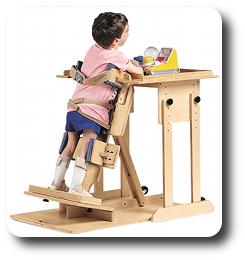Saturday 30 October, 3.30pm until 5.00pm, Courtyard Gallery
 Despite savage public spending cuts, one scheme the coalition has enthusiastically retained is New Labour’s flagship nursery scheme Surestart. Its philosophy of early intervention, the idea that social problems should be prevented before they happen, is popular with policy makers across the political divide. Experts claim early intervention can break the intergenerational cycle of poor parenting, antisocial behaviour and underachievement, relieving the long-term burden on remedial policies such as prisons, policing, drug rehabilitation and benefits. Academic evidence, most fashionably neuroscience, is said to prove that the first three years of a child’s life are its most crucial. Whether it’s brain development or emotional well being, everyone seems to agree that what happens to young children inevitably has a huge impact on their life chances. But does such intervention really work, and given the intrusion it involves into family life, is it legitimate?
Despite savage public spending cuts, one scheme the coalition has enthusiastically retained is New Labour’s flagship nursery scheme Surestart. Its philosophy of early intervention, the idea that social problems should be prevented before they happen, is popular with policy makers across the political divide. Experts claim early intervention can break the intergenerational cycle of poor parenting, antisocial behaviour and underachievement, relieving the long-term burden on remedial policies such as prisons, policing, drug rehabilitation and benefits. Academic evidence, most fashionably neuroscience, is said to prove that the first three years of a child’s life are its most crucial. Whether it’s brain development or emotional well being, everyone seems to agree that what happens to young children inevitably has a huge impact on their life chances. But does such intervention really work, and given the intrusion it involves into family life, is it legitimate?
Certainly, this approach gives a green light to a wide-range of intensive initiatives: third party ‘experts’ are given carte blanche to intervene in families, even to try to shape children’s emotional lives. This is one arena where the ‘Nanny State’ seems to be uncontroversial. For all its scientific language, however, the theory behind early intervention often appears to justify the pet concerns of whichever policy wonks pick it up. For the Centre for Social Justice, for example, it underpins a defence of the two-parent family. For Demos, it shows that family form is unimportant as long as children are subject to the right influences.
But shouldn’t we question the core assumptions behind early intervention? Can we really tackle the social problems of tomorrow by sorting out the children of today? Critics argue it is over-deterministic to insist future actions and outcomes are fixed at such a young age. If we label certain parenting styles as dysfunctional and inevitably doomed to produce problem citizens, don’t we diminish individuals’ capacity to take responsibility for themselves in adulthood? Does such a predictive approach allow evasion of responsibility for antisocial actions in later life (lack of parental love made me do it, guv)? And can inequality and deprivation really be explained away so easily (it’s not the system that makes you poor, it’s poor parenting we should blame)? Might early intervention undermine the very idea of the social by privileging outside expert knowledge over the potentially positive influence of families and other adults in the children’s own communities?
Listen to session audio:
 | Dr Samantha Callan chairman-in-residence for family, early years and mental health, Centre for Social Justice |
 | Naomi Eisenstadt senior research fellow, education and social policy, University of Oxford; former director, SureStart and Social Exclusion Task Force |
 | Dr Dimitra Hartas associate professor, special education and disability, University of Warwick; author, The Right to Childhoods: critical perspectives on rights, difference and knowledge in a transient world |
 | Dr Stuart Waiton lecturer in sociology and criminology, Abertay University; author, Snobs' Law: criminalising football fans in an age of intolerance |
| Chair: | |

|
Martin Earnshaw
co-editor Future of Community: reports of a death greatly exaggerated; chair, IoI Social Policy Forum |
Bad parenting does more to hold back poor children than poverty, Nick Clegg has said.
Daily Telegraph, 19 August 2010A ground-breaking study has found that mothers can go back to work months after the birth of their child without the baby's wellbeing suffering as a result.
Tracy McVeigh and Anushka Asthana, Observer, 2 August 2010 Sure Start: a fancy new way to police the family
Sure Start: a fancy new way to police the family
With Britain’s new coalition government ushering in public-sector cuts that will mean ‘years of pain ahead’, Sure Start, the former New Labour government’s flagship policy for children aged 0-5, has come under the microscope.
Jennie Bristow, spiked, 23 June 2010Labour's flagship scheme to help poor toddlers and children must be scrapped, an influential think-tank said yesterday.
Steve Doughty, Daily Mail, 12 June 2010Policies that focus on children as simultaneously vulnerable and dangerous fail to acknowledge the social inequalities they face
Dimitra Hartas, Guardian, 13 May 2010The philosophy of Early Intervention goes much further than prevention. It is about breaking the intergenerational cycle of underachievement in many of our communities and enabling our communities over time to heal themselves.
Graham Allen MP and Rt Hon Iain Duncan Smith MP, Centre for Social Justice and The Smith Institute, May 2009A policy report from the Early Years Commission
Dr Samantha Callan, Early Years Commission, September 2008
 This new text by a recognized authority offers a clear, invigorating and theoretically sophisticated commentary on child abuse and child welfare policy
This new text by a recognized authority offers a clear, invigorating and theoretically sophisticated commentary on child abuse and child welfare policy
Nigel Parton, Palgrave Macmillan, 20 September 2005